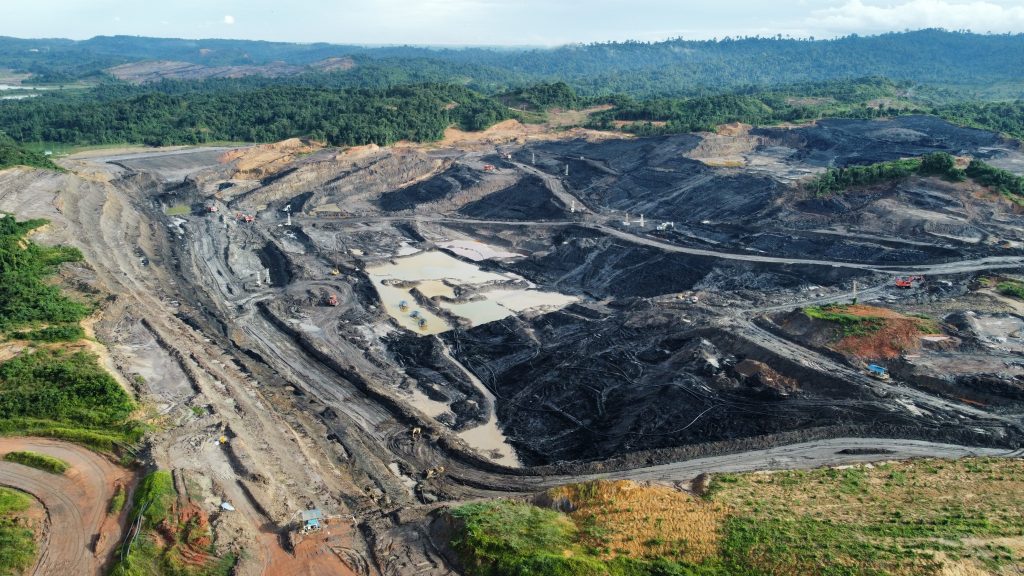A Press Release Issued by AEER, Jatam East Kalimantan, Kanopi Hijau Bengkulu
The Convention on Biological Diversity (CBD) is preparing The Post-2020 Global Biodiversity Framework. The framework’s target is expected to be achieved in 2050 with milestones in 2030. This framework continues The Aichi Biodiversity Targets that have been designed in the previous decade which are failed to achieve the global targets in saving biodiversity.
Three environmental organizations argue that Indonesia can contribute to the current global biodiversity initiative by stopping the expansion of mining production areas and revoking exploration mining permits.
Massive coal mining activities in Kalimantan damage the biodiversity on the island. Mining activities such as land clearing, excavation of topsoil, and removal of overburden harm landscape-scale and disrupt the ecological processes around the area. The destruction of ecological processes will reduce the wildlife habitat and reduce the biodiversity of the local area.
Based on the study by the Association for Ecological Action and People’s Emancipation (AEER) using data on the biodiversity of the Island of Kalimantan and data on mining activities on Kalimantan, it was found that mining activities on the island pose a significant threat to biodiversity. Various protected species – either according to the International Union for Conservation of Nature (IUCN) or according to the Ministry of Environment and Forestry (KLHK) – are threatened by mining activities carried around wildlife habitats. In addition, various ecosystems that have an important role as habitats for wildlife – such as dryland forests and mangrove forests – are threatened with degradation due to mining activities around these ecosystems. This happens because the location of mining activities is close to the important ecosystems that support wildlife and human activities in the vicinity. Several important species affected by the mining activities in Kalimantan include Pongo pygmaeus (Borneo orangutan), Sphyrna lewini (hammerhead shark), Helarctos malayanus (sun bear), and Nasalis larvatus (proboscis monkey).
Pradarma Rupang, Dynamist of East Kalimantan Jatam , stated that mining activities destroy biodiversity through degradation and reduction of wildlife habitat. The energy transition from coal to clean and environmentally friendly energy will stop coal mining activities, land conversion, and global climate change. Biodiversity, as well as the benefits provided by it, are very beneficial for the sustainability of human life. However, habitat degradation and extinction that threaten global biodiversity will continue if coal production is not reduced
Muhammad Iqbal Patiroi, Coordinator of the Climate and Biodiversity Program of the AEER Association, stated that global biodiversity loss increased by a thousand times compared to the available fossil record and could increase up to ten times in the future, according to Millennium Ecosystem Assessment. The assessment from IPBES (Intergovernmental Science-Policy Platform on Biodiversity and Ecosystem Services) in 2021, at least 75% of the world’s land area has altered significantly and 35% of the world’s species are threatened with extinction, which is also reflected in the state of the biodiversity of the Kalimantan.
Ali Akbar, Director Executive Board of Indonesia Green Canopy, stated that the global community should take steps to stop the threat of extinction that has occurred globally. The Aichi Biodiversity Targets that agreed in 2011 and are valid until 2020 have failed to encourage the global community to slow down the rate of decline in global biodiversity. The new framework is needed to continue the conservation spirit that has been promoted through the Aichi Biodiversity Targets while taking into account the results and shortcomings of the previous framework. With improvements to the design of the new framework for saving biodiversity, it is hoped that the global community and policymakers will be able to fulfill the commitments that will be mutually agreed upon. Stopping the expansion of coal mining production areas is an important strategy.


